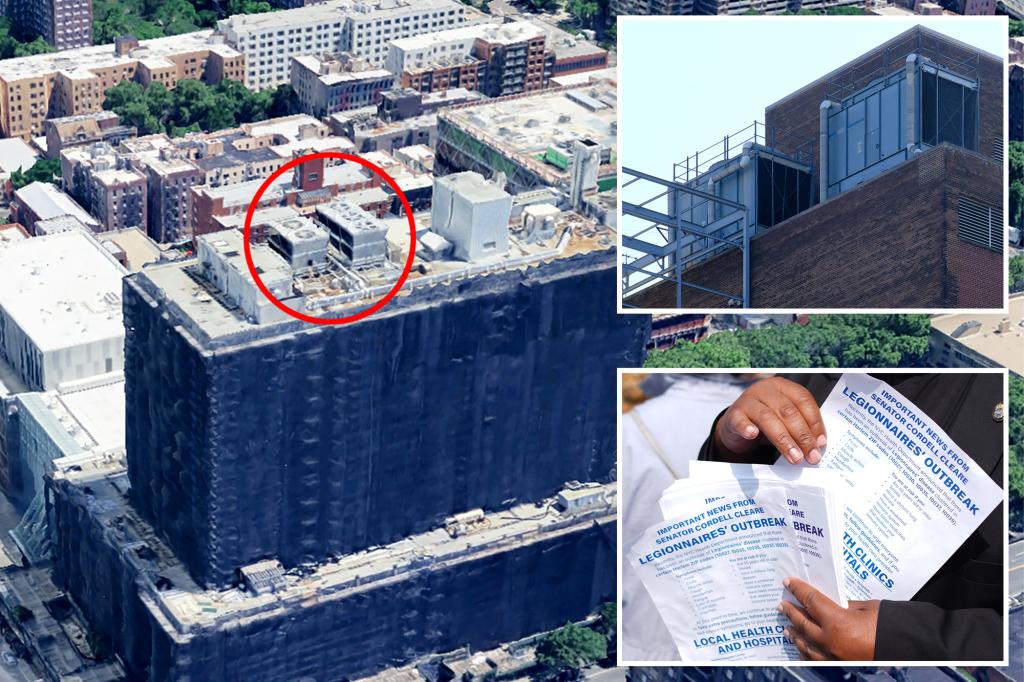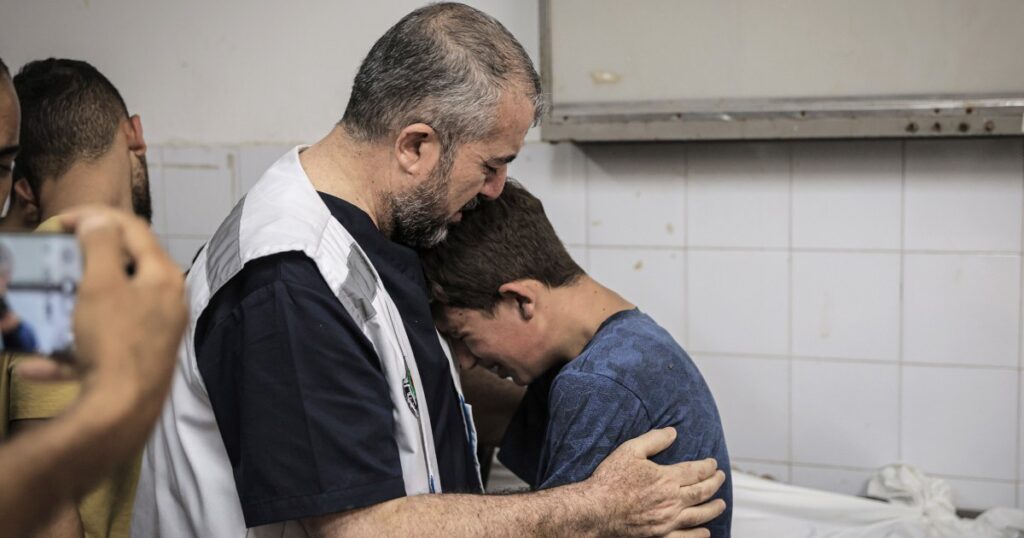Title: Untreated Rainwater in Harlem Hospital Towers Linked to Recent Legionnaires’ Disease Outbreak
Rainwater that was not treated in cooling towers at Harlem Hospital has been implicated in New York City’s most severe outbreak of Legionnaires’ disease in ten years, according to Rev. Al Sharpton.
On Tuesday, Sharpton, in collaboration with civil rights attorney Ben Crump, announced plans to file a lawsuit against a construction company involved in the Harlem area, which has been identified as the center of an outbreak resulting in five fatalities and over 100 illnesses.
“Residents should have confidence in the safety of our hospitals and public facilities,” Sharpton stated.
The untreated rainwater accumulated in the hospital’s cooling towers following several significant storms in July, allowing bacteria to propagate, according to Sharpton and Crump’s statements.
The lawsuit, whose specifics are still being clarified, aligns with increasing concerns regarding the city’s oversight of cooling tower inspections, especially at public buildings such as Harlem Hospital, which may have contributed to the proliferation of Legionnaires’ disease-causing bacteria.
Out of 12 cooling towers that tested positive for Legionella bacteria, four were situated on city or government-owned properties. Two of these facilities—Harlem Hospital and the Central Harlem Sexual Health Clinic—are located on the same block of West 137th Street, a predominantly residential area.
By state regulations and municipal health codes, property owners are mandated to test for Legionella every 90 days to prevent outbreaks.
City health department personnel also conduct routine inspections, typically annually, to ensure proper disinfection of cooling towers and to confirm that building owners are performing regular Legionella testing.
An analysis of municipal records revealed that the Central Harlem Sexual Health Clinic accrued 18 violations during cooling tower inspections since 2017. However, there’s no documented evidence regarding whether the clinic’s cooling tower was tested for Legionella.
A representative from the Department of Health acknowledged that a new cooling tower was installed at the clinic in June.
“Just four weeks prior, the clinic’s cooling tower had tested negative for Legionella bacteria,” the spokesperson mentioned.
“The water sample collected in July 2025 as part of the Legionnaires’ Disease Cluster response was positive, indicating how swiftly Legionella can grow in cooling towers,” the spokesperson noted but lacked further details about the previous tower’s testing or replacement reasons.
The initial confirmed cases of Legionnaires’ disease in the recent outbreak were reported on July 22, as per health department data. However, Daniel Mckeithan, a 52-year-old chef, reported feeling unwell starting June 19 while attending his daughter’s baby shower in Atlanta.
Initially mistaking symptoms for flu, Mckeithan spent the duration of the celebration in a hotel before returning to New York and visiting Harlem Hospital on June 23, where he received antibiotics intravenously for nearly a week.
“I was terrified. It affects your lungs; I still feel a strain on my lungs,” he recounted. “Legionnaires’ hits you fast.”
Mckeithan expressed his disbelief upon learning that the hospital he visited had a cooling tower that tested positive for Legionella.
“You’re referring to a government facility,” he remarked. “They should exercise greater caution.”
Attorney Jory Lange, representing 44 clients affected by the outbreak—including Mckeithan and a deceased individual—has filed a separate lawsuit against the city’s Health + Hospitals alleging that a cooling tower at Harlem Hospital contributed to a 2021 outbreak.
“It’s concerning that a significant portion of the cooling towers involved in the latest outbreak are government-owned,” he stated, questioning the duration of the contamination.
Scott A. Harford, an attorney co-representing the plaintiffs and previously involved in a 2018 outbreak case, emphasized that Legionella can proliferate quickly without a proper water management plan.
“There are alarming maintenance issues in several city-owned buildings, prompting a need for scrutinizing their water quality practices,” he added.
A passerby, Robert, 59, voiced his frustration regarding the city’s neglect, describing it as “irresponsible.”
“It’s a city-operated hospital, for heaven’s sake,” he remarked. “I doubt this could have been a coincidence. This only seems to happen in Harlem.”
Local resident Toya M. expressed a lack of surprise regarding the outbreak, asserting, “We are routinely overlooked. Had this occurred in a predominantly white neighborhood, regular inspections would have been standard.”
Mayor Eric Adams defended the health department during an unrelated event, stating that Legionella-causing bacteria can emerge shortly after a negative test result.
“I don’t think the Department of Health and Mental Hygiene can be accused of lacking proactivity or responsiveness in their mission to protect the lives of New Yorkers,” he asserted.

Passionate journalist and digital news editor with a keen eye for global affairs and emerging trends. As the founder and lead writer of RSS News US, he is dedicated to delivering accurate, insightful, and engaging content to readers seeking trustworthy news in a fast-paced world.


